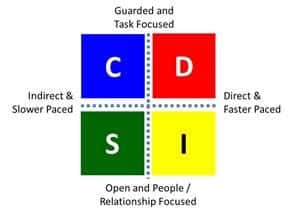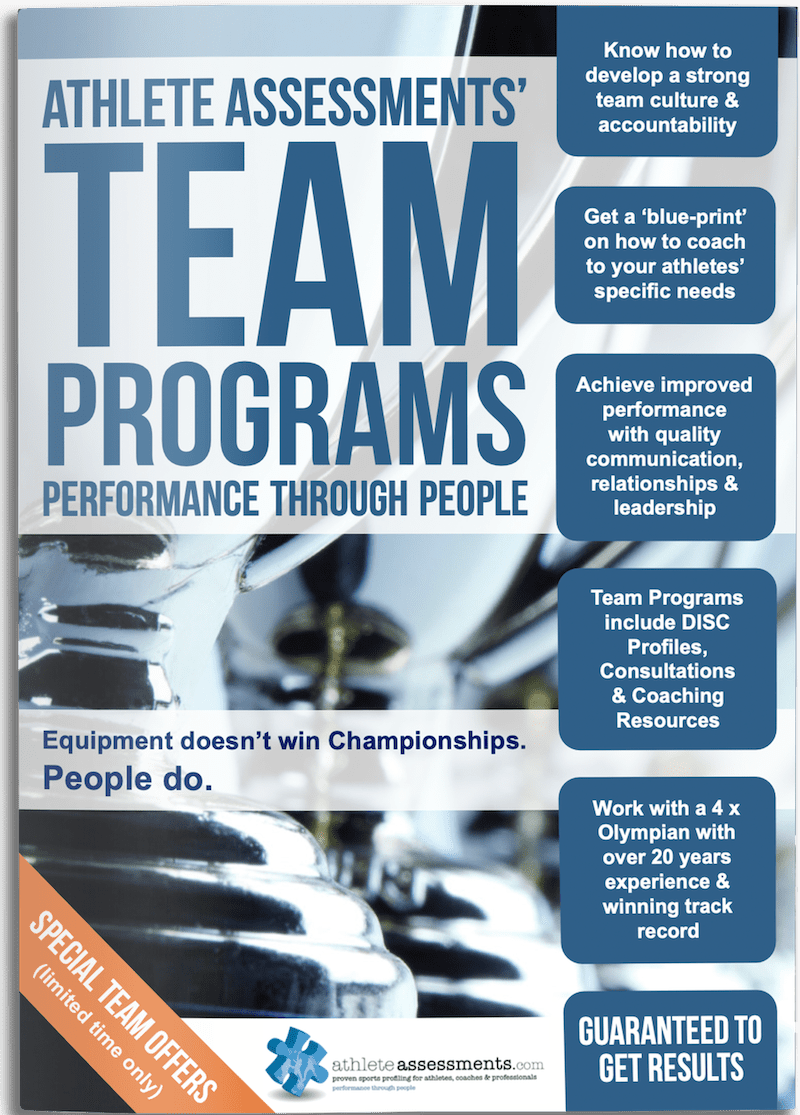In these economic times, can you afford the cost of a bad hire?
A study conducted by the Harvard Business School estimated making poor hiring decisions can cost a company as much as three times an employee’s annual compensation package (this includes not only base salary, but commission and bonus).
Getting your recruitment decisions right is critical. So, what are the top factors of best practice recruitment in sport? Making sure you are hiring the right employee can be a challenging process. Making a bad hire is expensive, time consuming, and has a negative impact on your work culture. But when you get recruitment right, employees are productive, engaged, and give up to 30% more discretionary effort. There is a positive impact on your work environment, making it easier for you to reach your organizations goals. Ensure your recruitment practices aren’t hurting your organization’s success. Here we discuss the Top 6 Factors for successful recruitment in sport and your sporting organization.
1. Have a well-defined and thorough knowledge of the role
Hiring the right employee begins with having detailed insight into the role they will need to fulfill. Analyze the position and define the duties they will need to accomplish. Assess the work environment the candidates will need to perform in, and their responsibilities. Starting with this knowledge is critical for a successful recruitment process.
Best Practice Tip: Identify the key characteristics of the most successful people who perform the role. Recognizing these traits allows you to recruit based on quality information.
2. Get access to the Right Candidates
Finding the right candidates for the available position is essential to achieving a successful outcome. Partner with top recruitment advisors who have the strongest networks, or develop your own talent pool to draw from. You can cultivate relationships with potential applicants well before you need them when recruiting. The more quality candidates in your talent pool, the more likely you are to achieve a positive outcome.
Best Practice Tip: “It’s not what you know, it’s who you know” works both ways. Having easy access to the top candidates through your network and relationships can make all the difference.
3. Ask the Right Interview Questions
The job interview is a key tool in recruitment – but it needs to be done right. Make sure you are asking for specific examples of how the applicant has exhibited the skills you need them to possess. This will provide you with concrete evidence. This type of question should help you to distinguish between the average and exceptional applicants.
Best Practice Tip: A conversation rather than an interrogation, with questions about real-life examples, will give you a better insight into potential employees.
4. Don’t Skip the Essentials
Avoid ‘falling in love’ with candidates and only doing a superficial examination into their background and references. No matter how well an applicant comes across during an interview or on their résumé, it is vital their qualifications are verified. The last thing you want is to find out that their sterling credentials, experience, or even degrees are falsified.
Best Practice Tip: Connecting with a quality recruitment firm or having this capability in-house can support you to make this process less stressful.
5. Use a Quality Assessment Tool
When recruiting, it is tempting to be favorable towards candidates who are just like you (it’s human nature!). But be conscious of the needs of the role. Does the role require someone just like you? Or does it need someone with a different outlook? Use a quality assessment tool to be confident that your recruit will fit both into the vacant position, and into your organization as a whole. Having a deeper understanding of applicants’ motivations, strengths and areas for development relating to their professional role. Assessments will allow you to gain insight into what environment candidates would be most successful in, as well as their communication preferences.
Best Practice Tip: Using assessments you can create a holistic recruitment process using independent evaluation of the applicants. Used in conjunction with Interviews and other recruitment methods, assessments are the most reliable indicator of a successful recruitment.
6. Would your recruitment process benefit from…
- Quicker and more efficient ‘getting to know you’ methods
- Having insight into how to build rapport and communicate more effectively with each applicant. (Especially, when competition is fierce for the top people)
- A more reliable way to understanding the strengths, weaknesses and what environment the candidate will perform best in
- Using a proven assessment tool specifically designed for the sports industry
- Making confident & informed recruitment decisions
- Having a ‘blue print’ on how to best work with the individual when they become part of your team
Benefit from using a DISC Profile specific to sport and your needs.
Where to from here?
Each assessment includes a 12-minute online survey and results in a 40-page personalized DISC Profile Report (with summaries for easy use). It details the individual’s personal style, strengths, limiting behaviors, communication preferences and the environment they perform best in. You can easily and quickly build this into your recruitment practices and gain the benefits immediately.
Be strategic. Free up your valuable time from the stress of ‘what is someone really like’ and make it your competitive advantage!
Athlete Assessments has a suite of DISC Profiles for the distinctive roles in sport:
There is one specifically for sport management, used for sports administrators, team managers and a wide range of sports professionals – the Sports ManagerDISC Profile. If you recruit head coaches, assistant coaches, specialist coaches, strength & conditioning coaches or other coaching related roles, the CoachDISC Profile is a must. And, if you are involved in the recruitment of athletes and players, the AthleteDISC Profile is specific to the role of the athlete.
At Athlete Assessments, we’re here to provide you with excellence in service and here to help you be your best. If there is anything we can assist you with, please contact us.
Recommended Articles
As we all know, our personality impacts our behavior and as such has a direct impact on our coaching style. However, unlike personality, which is relatively stable, a coach’s style is a preferred pattern of behavior and as such it can be changed or adapted depending on the situation. Most of all though, a coach’s style can be changed or adapted if they are aware of their style preference and what style will give them the results they need.
Recruiting. It’s fundamental to the success of any team and as coaches, you make an enormous investment in time with the aim to get it right. So often, coaches are looking for the X-factor or conversations are focused on a physical attribute of a particular player. Are you missing one of the most critical aspects for your team’s success? And, could the success factor come from an unlikely place?
Top 7 Things to Get Right By Bo Hanson - 4x Olympian, Coaching Consultant & Director of Athlete AssessmentsSuccessful recruitment is the life blood of top performing sports teams and organizations around the World. Whilst the intricacies…
By Bo Hanson - 4x Olympian, Coaching Consultant & Director of Athlete AssessmentsThe Advantage DISC gives in Recruiting Increasingly the Coaches we work with want a better understanding of how to recognize the different DISC Styles during…










